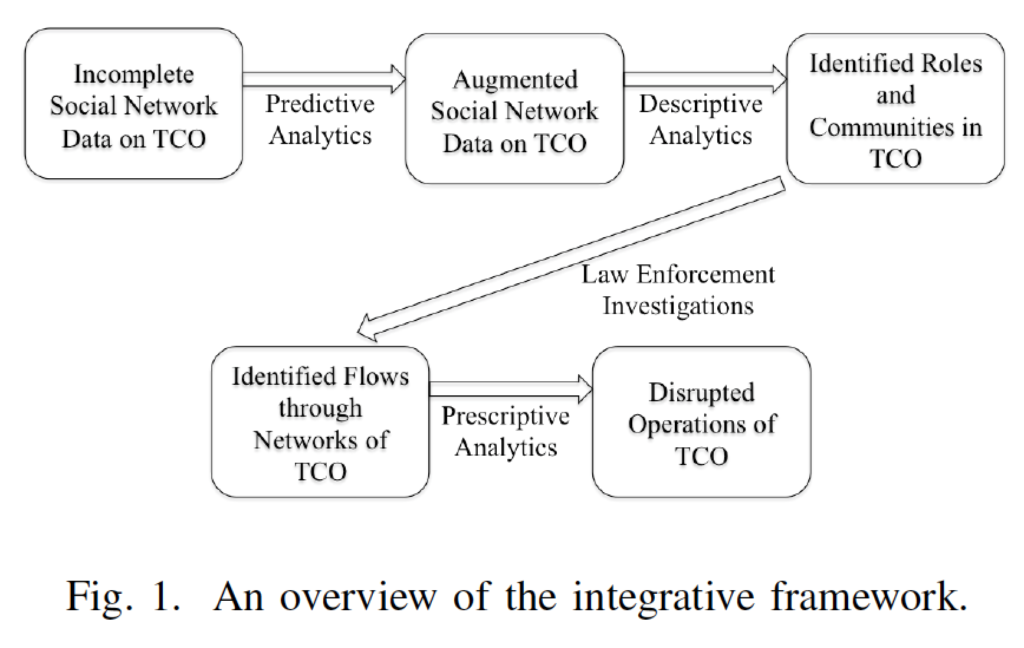
In this paper, we describe a framework that integrates descriptive, predictive, and prescriptive analytics that aids detecting and disrupting a transnational criminal organization (TCO) operating as interdependent contraband smuggling, money, and money laundering networks. This type of TCO will smuggle contraband across the U.S. border, generate revenues from illegal sales within the U.S., and then use the money laundering network to send the money out of the U.S. Law enforcement may have partial information about the underlying social network of the TCO but this may be missing important, intentionally hidden connections between the criminals. The proposed framework predicts the missing links in the social network data and then algorithms are applied to the augmented data to detect the communities of the TCO. Each community serves a different role in the TCO and thus are necessary in modeling the operations of the organization. Once the communities are identified, we prescribe actions that allocate resources to disrupt the TCO operations optimally in terms of law enforcement criteria.
